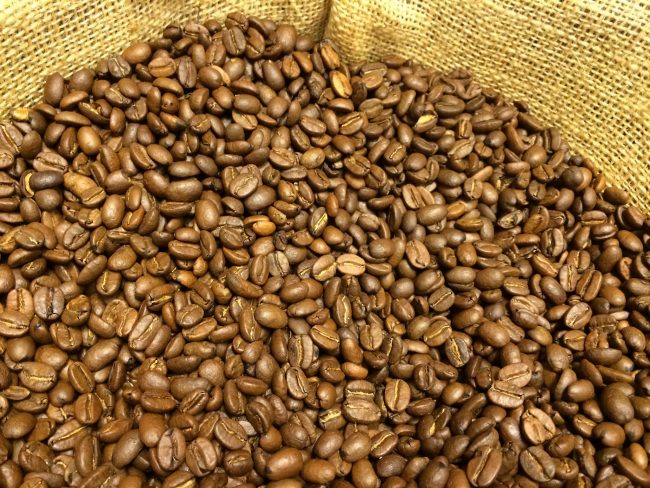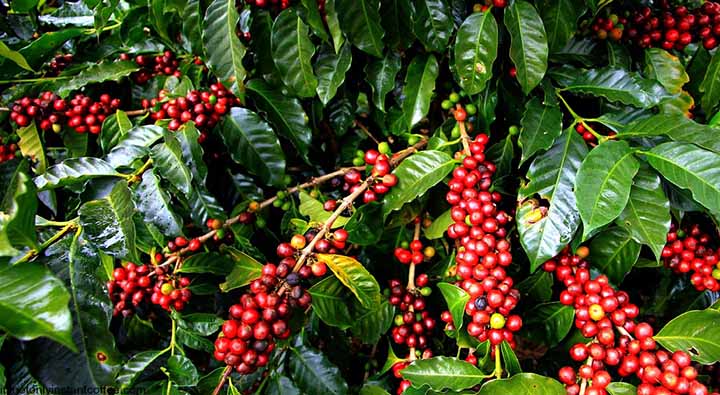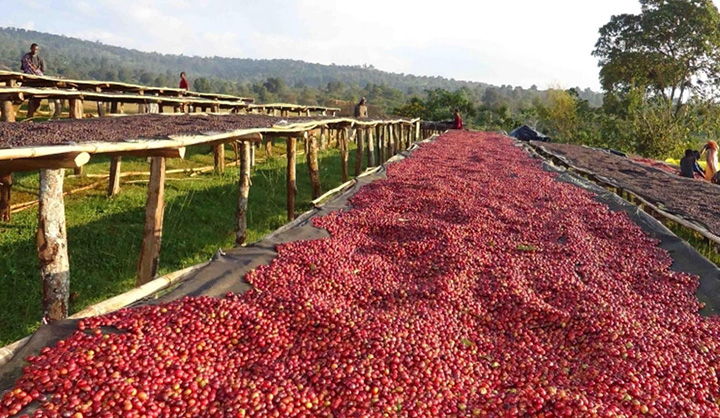By Tun Tun Naing,
Than Zaw Min
“Arabica coffee, produced in PyinOoLwin region of Mandalay Region and Ywangan region of Shan State has reached the Speciality Coffee level. As coffee of the country is fetching reasonable prices in the global market, foreign exchange from coffee export will rise alongside the development of the country’s coffee sector. Additionally, coffee farmers as well as entrepreneurs will gain more benefits,” said Vice President U Henry Van Thio at the Myanmar Coffee Forum 2019 held in Mandalay.
At present, the country’s coffee sector lacks development, if compared with other Southeast Asian coffee exporters including Indonesia, Thailand and Vietnam, because of the weakness in processing technology, sharing information and smaller market.
Increasing offers and orders
The country is exporting the coffee produced in PyinOoLwin and Ywangan regions to China, Chinese Hong Kong, Malaysia, South Korea, Japan and Germany. Additionally, the US is offering to buy coffee from Myanmar. So, Myanmar coffee has a share in the global market and has become cash-earning organic export item. The original place of coffee is Ethiopia where the berry plants are first found in the 13th century. Later coffee spread to Egypt and Yemen. After the 15th century, England, Brazil, Australia, the US, Indonesia and India were growing coffee. Brazil first grew coffee in 1727; and Vietnam, in 1857. According to records, Myanmar first grew coffee in 1885.
Coffee growing has gained extra public interest after the first Coffee Forum was held in Nay Pyi Taw in May 2017. There has been increased in coffee sown acreage in the country. Because of the improvement in quality, it has become exportable. Myanmar Speciality Coffee now has its own place in the global market. As Myanmar sees brighter prospects for its Arabica coffee, the country has been concentrating on catching up with its neighbours in technology and quality, and on extending global market.

More sown acreage
Like the country’s Arabica coffee, the Robusta coffee also has bright prospects. As it is a high-yield crop, Kayin and Mon states and Taninthayi Region are extending Robusta coffee cultivation as their weather is suitable for the plant. They are going to export Robusta coffee to earn foreign exchange.
Deputy Minister for Agriculture, Livestock and Irrigation U Hla Kyaw suggested means to increase the income of coffee farmers through brisker sales. He said, “As Myanmar is just a developing country, its people are relying only on Pyawbwe brand instant coffee. So the country should extend cultivation of Robusta coffee as it is exportable, and may have higher local demand.”
The Ministry of Agriculture, Livestock and Irrigation has promised coffee farmers that it will apply innovative ideas in distributing high-yield quality coffee strains. In accord with the promise, the ministry will conduct awareness courses for coffee famers, and provide assistance for coffee entrepreneurs and farmers in all the different stages of the coffee business chain starting from cultivation to production of finish goods.
“We will join hands with foreign technicians, apart from local experts of the Agriculture Department in running education campaigns and courses for farmers and in setting up model plots region wise. We have already established some model plots in Kayin State. The Ministry of Agriculture, Livestock and Irrigation will help solve the problems of the business, and provide necessary cooperation to extend the export market and to develop the local coffee business,” the Deputy Minister explained.

Appropriate technology
But the local coffee business calls for greater cooperation between the Government and the private business sector, so that appropriate technology can be applied in producing quality coffee during the post-harvest processing, semi wash method can be conducted broadly, especially in the higher elevations, where water supply may be difficult, and small holders or farmers who own less land with low-coast agricultural equipment.
Local coffee businesses will be more successful if there is a link between the farmers and the ADB, NGOs and SMEs, which they can turn to for loans, besides the Myanmar Agriculture Development Bank. Moreover, this success also depends on organizing farmers into business groups or cooperatives, setting up a trust fund for them and provision of all-round assistance through correct and effective methods.
Potentials
Farmers will be able to generate more profits, if they can harvest quality produce that is safe for consumers. At present, the good agriculture practice (GAP) certificates have been issued for 15 kinds of crops. The future prospects are bright as some of the State-owned and private coffee farms have already received the GAP certificate.
As regards the requirements and hardships local coffee cultivators and producers are facing, Chairman of Ywangan Coffee Association U Maung Nu said, “We need technology for our products to reach the international market. We need market that is reliable and stable.
We also need business connections. With all these requirement fulfilled, we can produce more. Moreover, we need loans to make more investments.”
The major coffee growing regions of Myanmar are also the popular tourist destinations, which are usually crowded with visitors. So opening of coffee shops and cafés such as coffee gardens under innovative ideas will attract more vacationers. More visitors mean larger number of buyers. In this way, the coffee growing regions can generate more income and job opportunities and set up an auto economy.
Coffee produce in Myanmar now has a place in the international market. Thanks to the cooperation among the Myanmar Coffee Association, coffee farmers, experts of Agriculture Department, and foreign technicians, prospects are bright for the country to earn more foreign exchange from its coffee business. So coffee industry has reached the portal of its new era.
(Translation: TMT)


